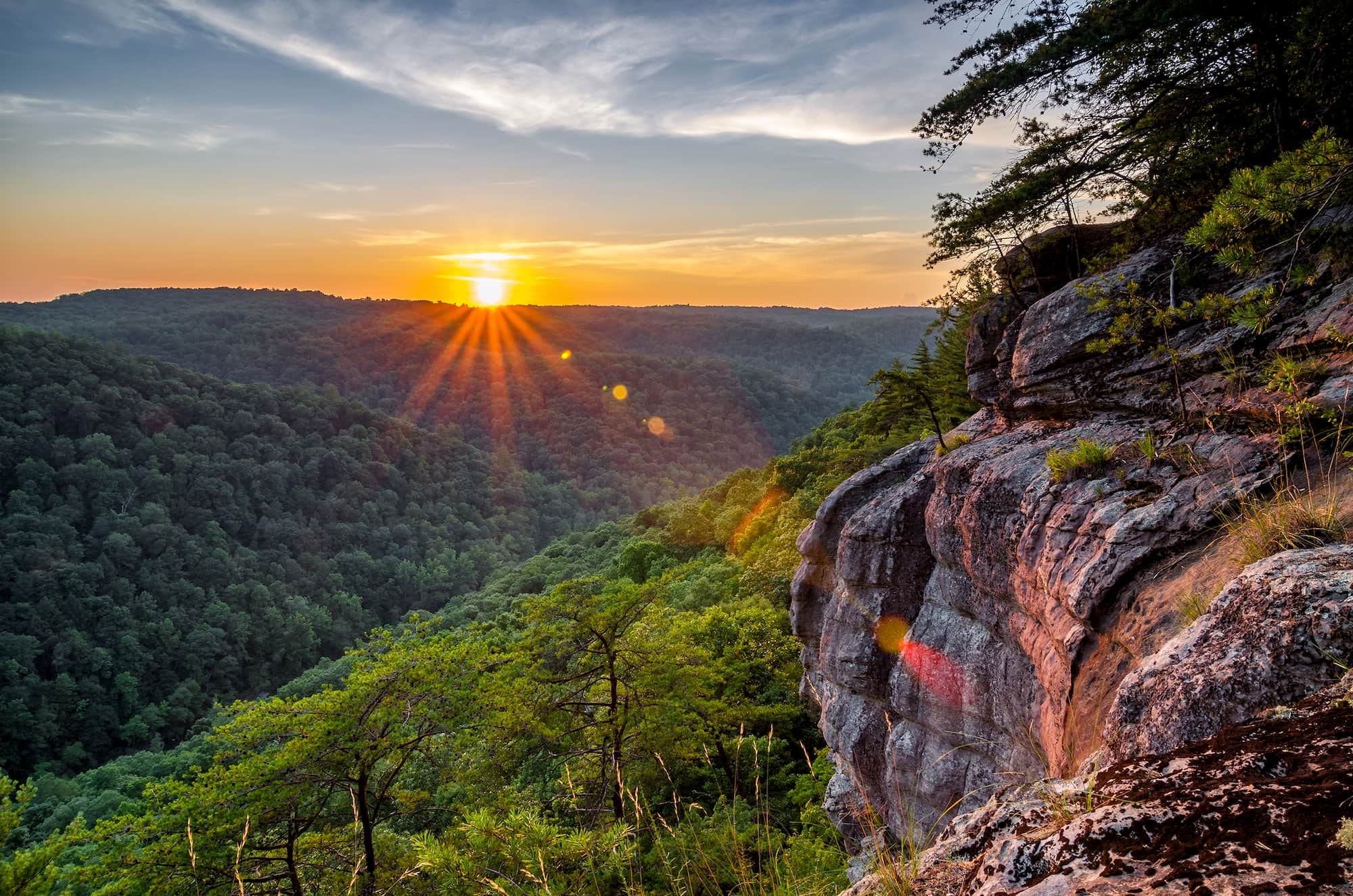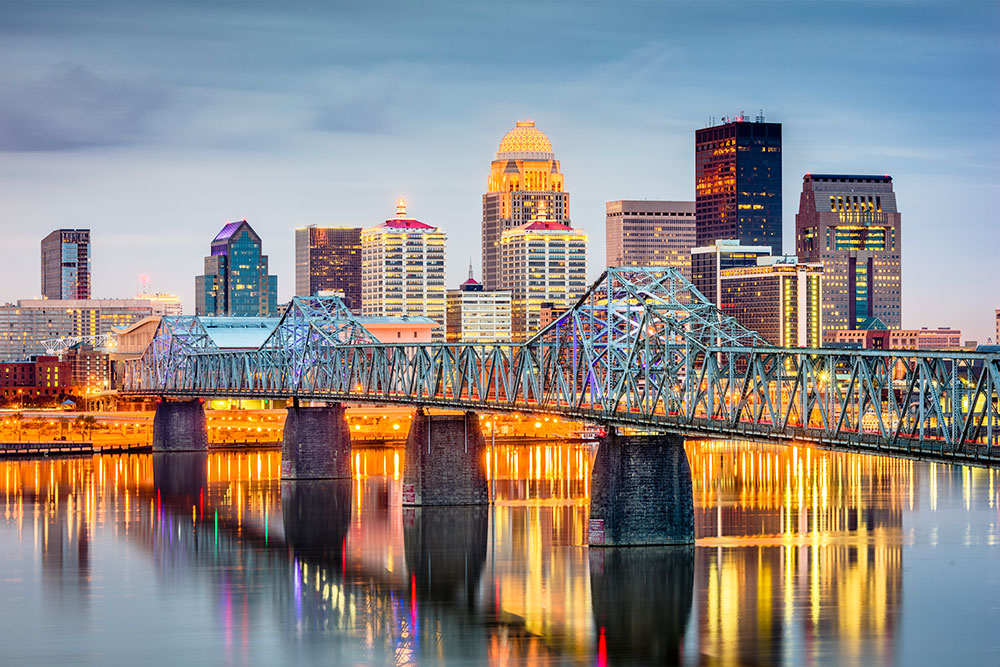What Was Kentucky Originally Called? Tracing The Bluegrass State's Earliest Names
Have you ever wondered about the true beginnings of a place, like what it was called before it became the state we know today? When it comes to Kentucky, the story of its name is a bit like a historical detective case, full of interesting twists and turns. People often ask, you know, about the very first labels given to this beautiful area.
The land that would become Kentucky holds centuries of stories, much older than its time as a state. Before any official declarations or borders were drawn, different groups of people lived on or used this land. They had their own names for it, names that often described the land's features or its purpose to them, so it's a rich history.
This article will explore the earliest names and descriptions given to the Kentucky region, pulling back the curtain on its long past. We'll look at the Native American words that likely gave the state its enduring name, and we'll also discover how it was once considered part of a much larger colonial territory. It's quite a journey through time, really.
- Did Daniel And Taylor Get Married
- Why Did Alison Fake Her Death
- How Much Does It Cost To Hire Danny Devito
- Why Did Danny Devito Get Famous
- What Is Jules Deployment
Table of Contents
- The Mystery of Kentucky's Name Unveiled
- From Virginia to Statehood: A Territorial Shift
- The First People and Their Land
- Early European Labels and Settlement Points
- Kentucky's Identity and Famous Nicknames
- A Glimpse into Kentucky's Evolving History
- Frequently Asked Questions About Kentucky's Origins
The Mystery of Kentucky's Name Unveiled
The name "Kentucky" itself, as a matter of fact, has a deep connection to the earliest inhabitants of the land. It's widely accepted that the name came from a Native American word, though exactly which one is a bit debated. This is really quite common for place names in the United States, you know.
One strong possibility is that it comes from an Iroquois or Shawnee word. It might even be from Wyandot, which is another indigenous language. These words often described the land itself. For example, some suggest the word "Kentake" is the source, meaning something like "meadow" or "prairie." That makes a lot of sense, considering the beautiful landscapes found here.
Another word that comes up in discussions is "Kuttaawaa." This word, apparently, means something more like "hunting grounds" or "wilderness." It's interesting to think about how both descriptions fit parts of Kentucky. The city of Kuttawa, in fact, is still a place you can visit in Kentucky today, so the name stuck in some form.
- Is Bret Baier Married
- Who Is Jeremy Robinson The Lawyer
- Is Joe Devito Related To Danny Devito
- How Rich Is Danny Devito
- Is Shannon Bream Ill
Initially, this name was used for a river, and then it became a village name. Over time, more people started calling the whole area "Kentucke," which is a slightly older spelling. It seems the meaning of "meadow" or "prairie" really resonated, perhaps describing the open, fertile areas that drew settlers here.
From Virginia to Statehood: A Territorial Shift
Long before it was its own state, Kentucky was actually considered a part of Virginia. This is a fact that surprises some people, but it's true. The vast colonial claims meant that a lot of land to the west of the Appalachian Mountains fell under Virginia's control, more or less.
This changed in 1792. In that year, Kentucky was admitted as the 15th state of the Union. It was a pretty big deal, you see, because it was the very first state west of the Appalachian Mountains to join. This marked a significant expansion for the young United States, pushing its boundaries further into the continent.
By the time Kentucky became a state, it had already drawn a good number of people. Nearly 73,000 settlers had made their way there. These folks were looking for new opportunities and land, often following trails blazed by famous frontiersmen. This movement of people was quite a force, you know, shaping the future of the area.
So, while it wasn't called something completely different, its status as "part of Virginia" was its original political designation. It was a distinct geographic area, but legally, it belonged to the Commonwealth of Virginia. This relationship, by the way, eventually led to its separate statehood, as its population grew and its needs diverged from the eastern parts of Virginia.
The First People and Their Land
Before any European explorers arrived, the Kentucky region was home to various indigenous agricultural and hunting peoples. These groups, you know, left behind significant signs of their presence. They built burial and ceremonial mounds, which remain prominent features of the landscape even today. These structures tell us a lot about their lives and beliefs.
Later on, the area transformed into a major hunting ground and, sadly, a battlefield for other Native American peoples. Groups like the Shawnee, who came from the north, and the Cherokee, who were to the south, used this land. It was a shared space, but also a contested one, reflecting its value and resources, which is quite a common historical pattern.
Americans, by the way, often think of Kentucky as the "Daniel Boone State." Daniel Boone was, arguably, the nation’s most famous frontiersman. He hunted and explored extensively in this region. His journeys, in a way, helped open up the land for European settlement, although the indigenous peoples had been there for centuries before him.
The history of these first inhabitants is incredibly rich. They had a deep connection to the land, understanding its rhythms and resources in ways that newcomers often did not. Their legacy, you know, is still very much a part of Kentucky's identity, influencing its culture and the way we look at its natural beauty.
Early European Labels and Settlement Points
While "Kentucky" eventually stuck, some early English papers, in the early 1600s, referred to the area as "Carolina." This was, apparently, thought to be named for Charles I of England. It just goes to show how broad and sometimes imprecise early colonial claims could be, right?
It's interesting to note that other places in the colonies also saw name changes. For example, a place originally called New Netherlands was changed in 1664 when the English took it over. It was then named in honor of the Duke of York. This kind of renaming was a common practice as colonial powers shifted, so it's not unique to Kentucky's story.
When settlers started arriving in what would become Kentucky, certain natural entry points became important. Maysville, for instance, was originally called Limestone. It was located on the Ohio River. Like Cumberland Gap in the Appalachian Mountains, Maysville was a natural avenue for the earliest settlers to enter Kentucky. These spots were, quite literally, gateways.
In later years, African American slaves also sought freedom and opportunity by way of Maysville. This shows how these early settlement points continued to play a role in the lives of many people, offering paths forward. The names of these places, like Limestone, tell their own small stories about the region's past, you know.
Kentucky's Identity and Famous Nicknames
Today, Kentucky is officially called the Commonwealth of Kentucky. It's also widely known as the "Bluegrass State," a nickname that speaks to its distinctive landscape. This term, "bluegrass," refers to the particular type of grass that grows in the region, which has a bluish tint when it's young, especially in the spring. It's a pretty evocative name, isn't it?
From its earliest days, Kentucky served as a kind of gateway. It was a path from east to west for settlers moving across the continent. It also became a border state between the North and South, a position that would prove very significant during the Civil War. This dual role, in a way, shaped much of its subsequent history.
For most of its history, Kentucky has been an agricultural and mining state. This focus on farming and natural resources has deeply influenced its culture and economy. The land itself, with its meadows and prairies, arguably, has always been central to the identity of the people living there.
Kentucky borders several other states, including Illinois, Indiana, and Ohio to the north. West Virginia is to the northeast, and Virginia is to the east. Tennessee is to the south, and Missouri is to the west. Its northern border, by the way, is actually defined by the Ohio River. This geographical position has certainly played a part in its character.
A Glimpse into Kentucky's Evolving History
Kentucky's story doesn't stop with its early names and statehood. Its history is full of significant events and figures. For example, the first Kentucky Derby was held in 1875. At that time, only 37 of the 50 United States had yet been formed. This event, you know, has become a truly iconic part of Kentucky's heritage.
The state has also seen its share of conflict. Kentucky has a history of feuds, especially in its mountain regions. These disputes were often rooted in political, economic, and social tensions. The violence, in fact, climaxed with the assassination of Governor William Goebel in 1900. This was a very dark period, you see.
After the Civil War, reconstruction efforts reshaped Kentucky's political and social structures. Black suffrage, for instance, was established and maintained, which was a very important development. This shows a commitment to expanding rights, at least in some respects, during a challenging time.
Even the name of a famous brand changed because of Kentucky. In 1990, the Commonwealth of Kentucky trademarked its name. This forced Kentucky Fried Chicken to pay fees on its own name. So, it was changed to KFC, an acronym already in use by the public, to avoid the expense. That's a pretty interesting modern footnote to its naming history, isn't it?
Frequently Asked Questions About Kentucky's Origins
People often have questions about Kentucky's early days. Here are some common ones:
Was Kentucky originally part of Virginia?
Yes, it was. Kentucky was originally declared to be a part of Virginia. It was then made a separate entity before achieving statehood. This territorial arrangement, you know, was common for many areas west of the established colonies.
How did Kentucky get the name Kentucky?
The name "Kentucky" most likely derives from a Native American word. It is agreed that the name came from an indigenous word, but not which specific one. Possibilities include "Kentake," meaning "meadow" or "prairie," or "Kuttaawaa," meaning "hunting grounds" or "wilderness." The name was initially used for a river and then for a village, eventually becoming the name for the entire region, you see.
Who came up with the name of Kentucky?
The name "Kentucky" was not "come up with" by a single person in the way we might think of someone naming a child. Instead, it evolved from Native American language use. The indigenous peoples of the region had words describing the land, and these words, like "Kentake" or "Kuttaawaa," gradually became associated with the area by European explorers and settlers, leading to the name we use today. It's a more organic process, really, than a single inventor.
Learn more about Kentucky's rich history on our site, and for a deeper look into the state's founding, you can also explore Kentucky's path to statehood. To understand the broader context of American expansion, you might consult general historical resources like those found in academic libraries or reputable online archives. It's a fascinating journey, honestly, through time.
- Is Tommy Devito Danny Devitos Cousin
- What Happened To Ambroses Boyfriend
- Is Jules Supposed To Be A Guy
- Did Emily Have Her Third Baby
- Who Was Monicas Lawyer

Our Guide to Kentucky National Parks, Historic Parks, and National Trails

Moving to Kentucky | Living in Kentucky

Kentucky Wildcats Wallpapers - Wallpaper Cave